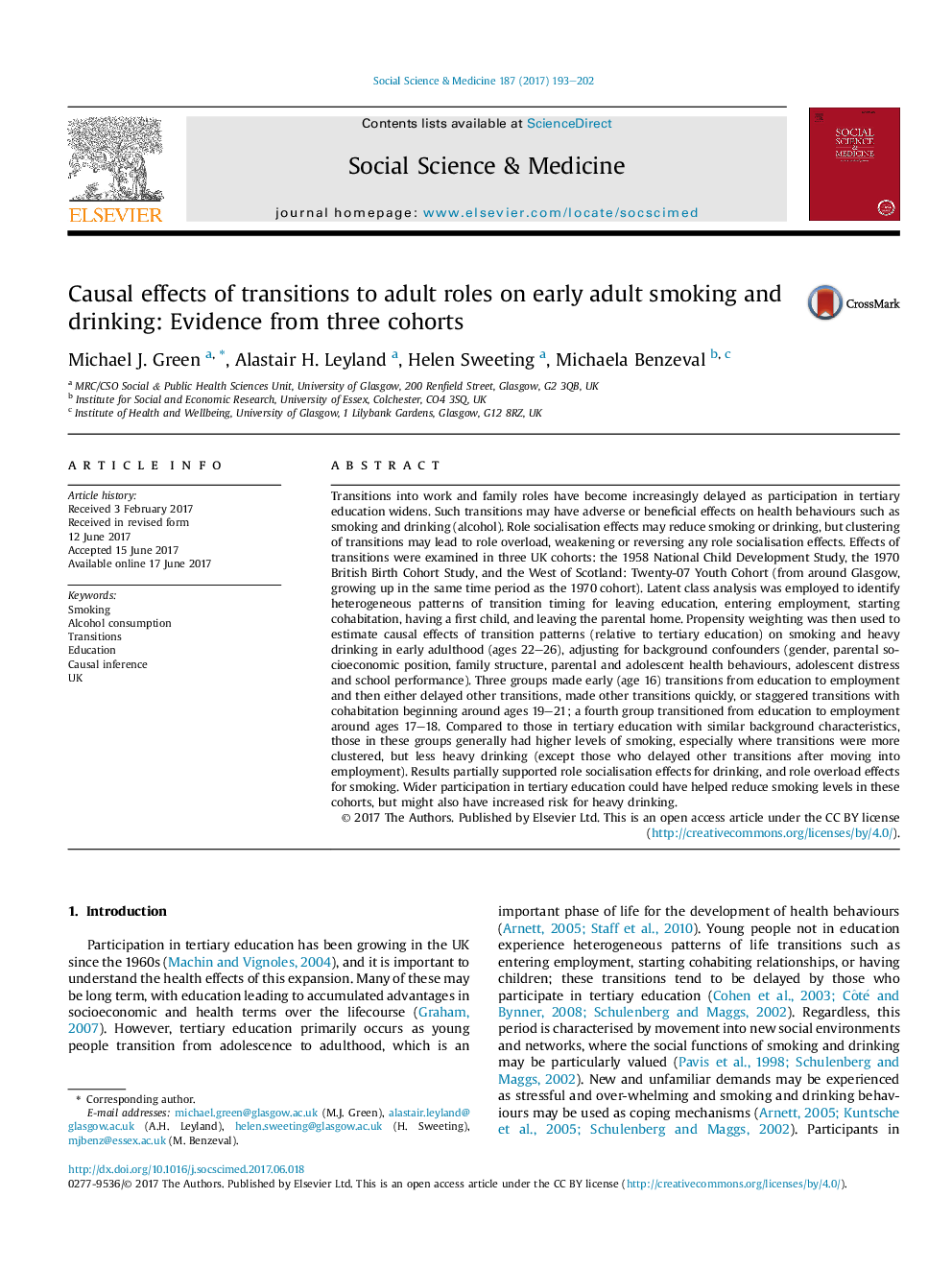| کد مقاله | کد نشریه | سال انتشار | مقاله انگلیسی | نسخه تمام متن |
|---|---|---|---|---|
| 5046475 | 1475982 | 2017 | 10 صفحه PDF | دانلود رایگان |
- Those not in tertiary education experience heterogeneous life transitions.
- Early transitions to adult roles may increase risk of smoking in early adulthood.
- Early entry to adult roles may reduce risk of heavy drinking in early adulthood.
Transitions into work and family roles have become increasingly delayed as participation in tertiary education widens. Such transitions may have adverse or beneficial effects on health behaviours such as smoking and drinking (alcohol). Role socialisation effects may reduce smoking or drinking, but clustering of transitions may lead to role overload, weakening or reversing any role socialisation effects. Effects of transitions were examined in three UK cohorts: the 1958 National Child Development Study, the 1970 British Birth Cohort Study, and the West of Scotland: Twenty-07 Youth Cohort (from around Glasgow, growing up in the same time period as the 1970 cohort). Latent class analysis was employed to identify heterogeneous patterns of transition timing for leaving education, entering employment, starting cohabitation, having a first child, and leaving the parental home. Propensity weighting was then used to estimate causal effects of transition patterns (relative to tertiary education) on smoking and heavy drinking in early adulthood (ages 22-26), adjusting for background confounders (gender, parental socioeconomic position, family structure, parental and adolescent health behaviours, adolescent distress and school performance). Three groups made early (age 16) transitions from education to employment and then either delayed other transitions, made other transitions quickly, or staggered transitions with cohabitation beginning around ages 19-21; a fourth group transitioned from education to employment around ages 17-18. Compared to those in tertiary education with similar background characteristics, those in these groups generally had higher levels of smoking, especially where transitions were more clustered, but less heavy drinking (except those who delayed other transitions after moving into employment). Results partially supported role socialisation effects for drinking, and role overload effects for smoking. Wider participation in tertiary education could have helped reduce smoking levels in these cohorts, but might also have increased risk for heavy drinking.
Journal: Social Science & Medicine - Volume 187, August 2017, Pages 193-202
